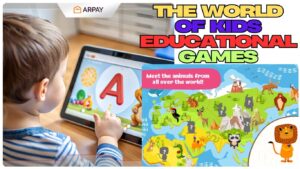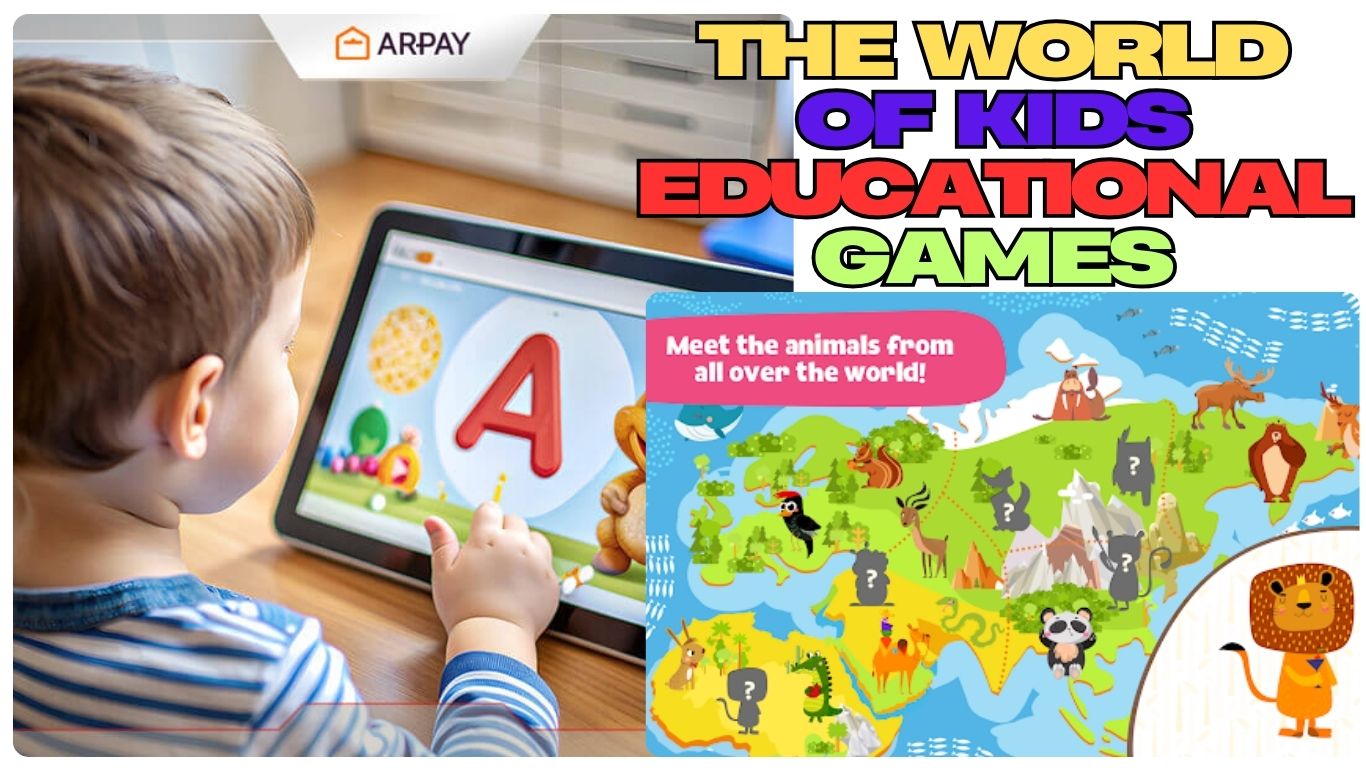In today’s world, screens are a big part of kids’ lives. While too much screen time can be a concern, technology also offers some amazing opportunities, especially when it comes to learning. Kids Educational Games are a fantastic way to blend fun and education, making learning more engaging and effective for children of all ages. Let’s explore the exciting world of educational games and see how they can benefit young learners.
What Exactly Are Kids Educational Games?
Simply put, kids educational games are games designed with the primary goal of teaching children specific skills or knowledge. These games can come in many forms, from traditional board games and puzzles to digital apps and online games. The key is that they are not just about entertainment; they have a clear learning objective woven into the gameplay.
Intense Detail: Think about a math game that challenges kids to solve addition problems to move their character forward, or a reading game where they need to identify sight words to unlock the next part of a story. These are examples of how educational games work. They take the core mechanics of a game – things like challenges, rewards, and interactive elements – and apply them to learning content. This makes the process of acquiring new skills or information feel less like work and more like fun. The games often incorporate elements like scoring systems, levels, and virtual rewards to keep kids motivated and coming back for more.
The Awesome Benefits of Learning Through Play
Why are educational games so popular and effective? It boils down to the numerous benefits they offer for children’s development and learning.
Intense Detail: One major benefit is increased engagement. Kids are naturally drawn to games, and when learning is presented in a game format, they are more likely to pay attention and actively participate. Educational games can also help improve problem-solving skills as children figure out how to overcome challenges within the game, often requiring them to apply what they’ve learned. They can also foster critical thinking as kids analyze situations and make decisions within the game’s context. Furthermore, many educational games are designed to be interactive, which can enhance memory and retention of information. The immediate feedback provided in games also helps children learn from their mistakes and adjust their strategies. Finally, playing games can be a great way to build social skills if the games involve collaboration or friendly competition with others.
A Wide Variety: Exploring Different Types of Educational Games
The world of kids educational games is incredibly diverse, offering something for almost every age group and learning style.
Intense Detail: You can find math games that cover everything from basic arithmetic to more complex concepts like fractions and algebra. Reading and language arts games focus on phonics, vocabulary, grammar, and reading comprehension. Science games can explore topics like the human body, animals, plants, and the environment. Social studies games might teach kids about history, geography, and different cultures. There are also logic and puzzle games that help develop critical thinking and spatial reasoning skills. Some games even focus on coding and programming, introducing kids to the basics of computer science in a fun way. The format of these games can vary greatly, including mobile apps, online browser games, board games, card games, and even video games designed with educational goals in mind.
What Makes an Educational Game Truly Effective?
Not all games that claim to be educational actually deliver on that promise. So, what are the key features that make an educational game truly effective?
Intense Detail: A good educational game should have clear learning objectives that are aligned with age-appropriate educational standards. The gameplay should be engaging and fun, keeping kids motivated to play. The game should provide meaningful feedback to the player, helping them understand their mistakes and learn from them. It should also offer an appropriate level of challenge, being neither too easy nor too difficult to maintain interest. Effective educational games often incorporate adaptive learning, meaning the difficulty adjusts based on the child’s performance. They should also be age-appropriate in terms of content and complexity. Finally, a good educational game often encourages repetition and practice in a way that doesn’t feel tedious.
Popular Examples: Games Kids Love to Learn With
There are many fantastic kids educational games available today. Here are just a few examples across different platforms:
Intense Detail: Websites like ABCya! and Funbrain offer a wide variety of free educational games for elementary and middle school students covering various subjects. Mobile apps like Khan Academy Kids, Endless Alphabet, and DragonBox Numbers provide engaging and interactive learning experiences for younger children. For older kids, games like Minecraft: Education Edition can be used to teach subjects like science, math, and history in a creative and collaborative environment. Even some mainstream video games incorporate educational elements, such as those that require problem-solving or strategic thinking. Board games like “Ticket to Ride” (for geography and strategy) and “Scrabble” (for vocabulary) also fall under the umbrella of educational games.
Tips for Choosing the Right Educational Games
With so many options available, how can parents and educators choose the best educational games for their kids?
Intense Detail: First, consider the child’s age and learning level. Make sure the game is appropriate for their current skills and knowledge. Identify the specific learning goals. What do you want the child to learn or practice? Look for games that focus on those areas. Read reviews and recommendations from other parents, teachers, or educational organizations. Try the game out yourself if possible to see if it’s engaging and truly educational. Look for games that offer a good balance of fun and learning. The game should be enjoyable enough to keep the child interested, but also have clear educational value. Finally, consider the platform – is it a mobile app, a website, a board game? Choose a format that is accessible and convenient for the child.
Are There Any Downsides to Educational Games?
While educational games offer many benefits, it’s also important to be aware of potential downsides.
Intense Detail: One concern is the potential for excessive screen time. It’s important to balance the use of educational games with other activities like outdoor play, reading, and social interaction. Another potential issue is that some games might focus too heavily on entertainment and not enough on actual learning. It’s crucial to choose games that have a genuine educational purpose. Additionally, some educational games might rely too much on rote memorization rather than fostering deeper understanding. Parents and educators should look for games that encourage critical thinking and problem-solving. Finally, the cost of some educational apps and games can be a barrier for some families. However, there are also many high-quality free options available.
